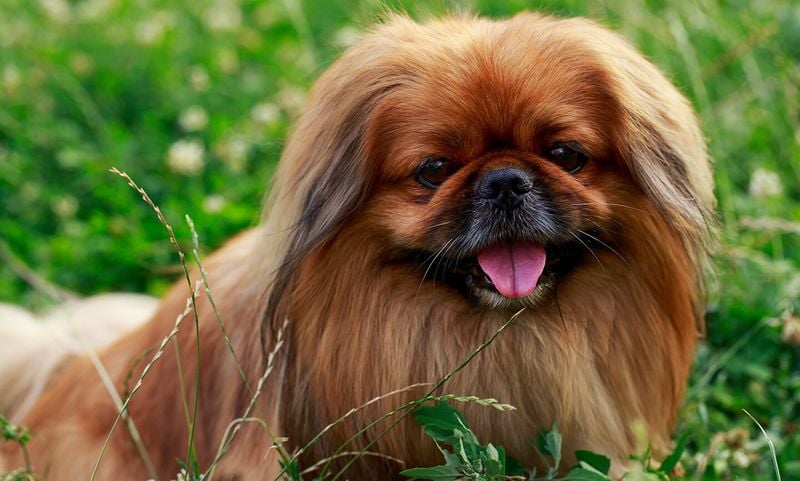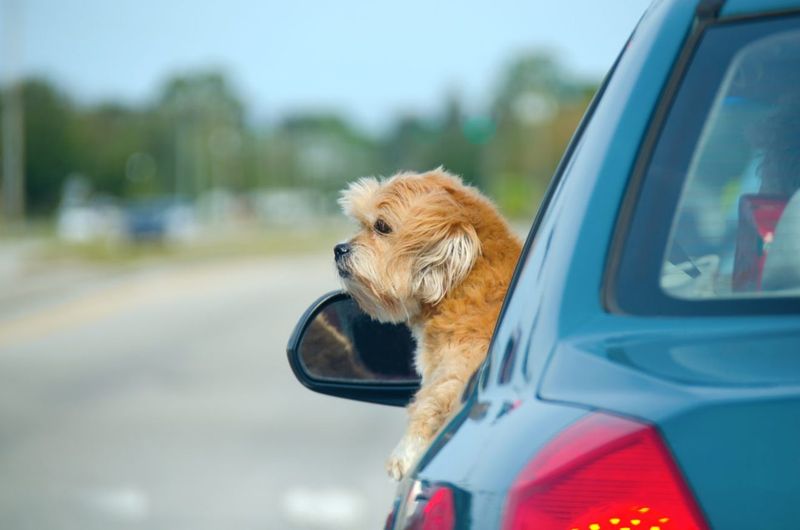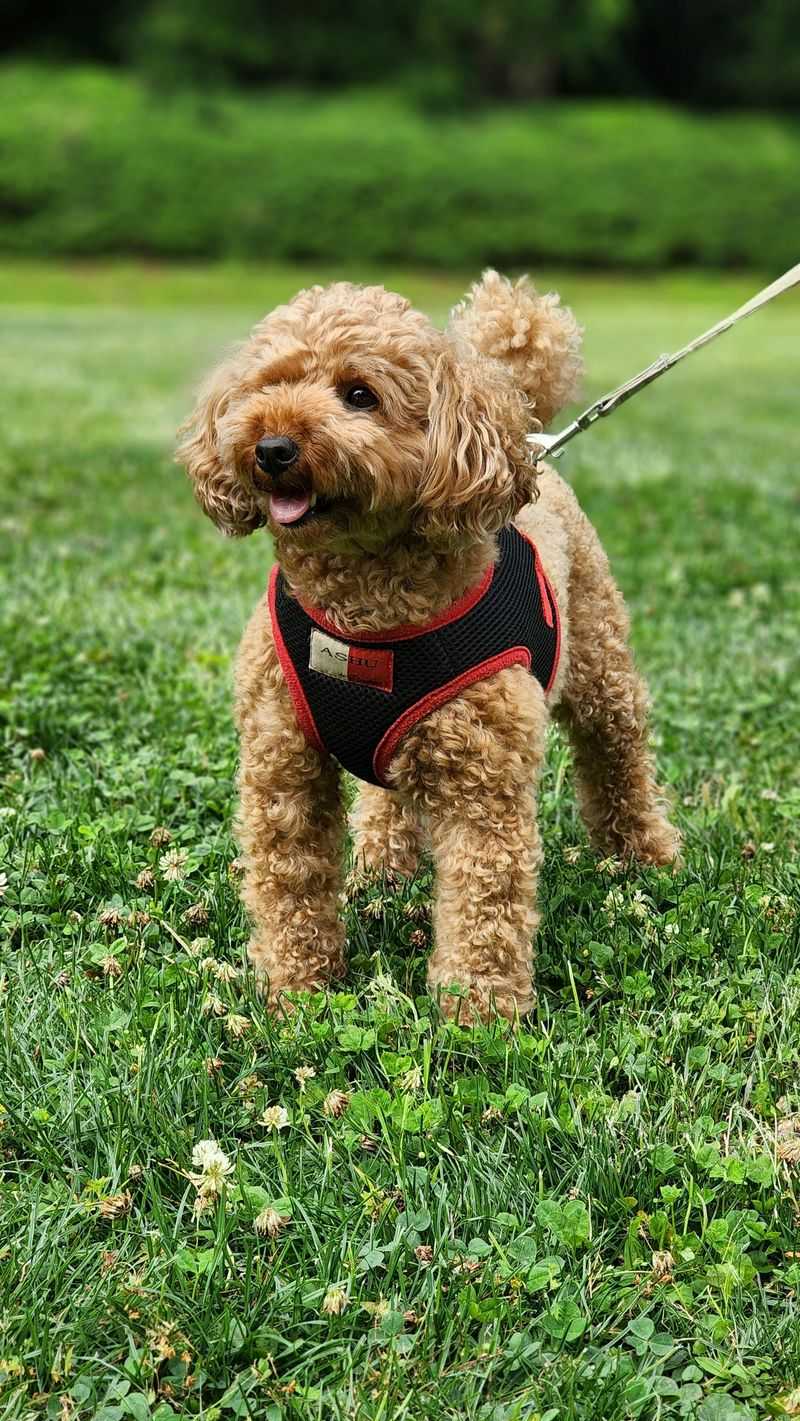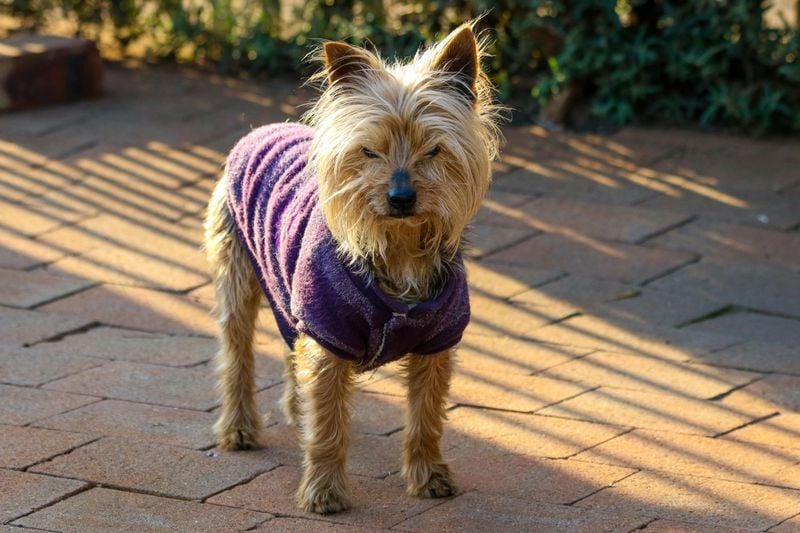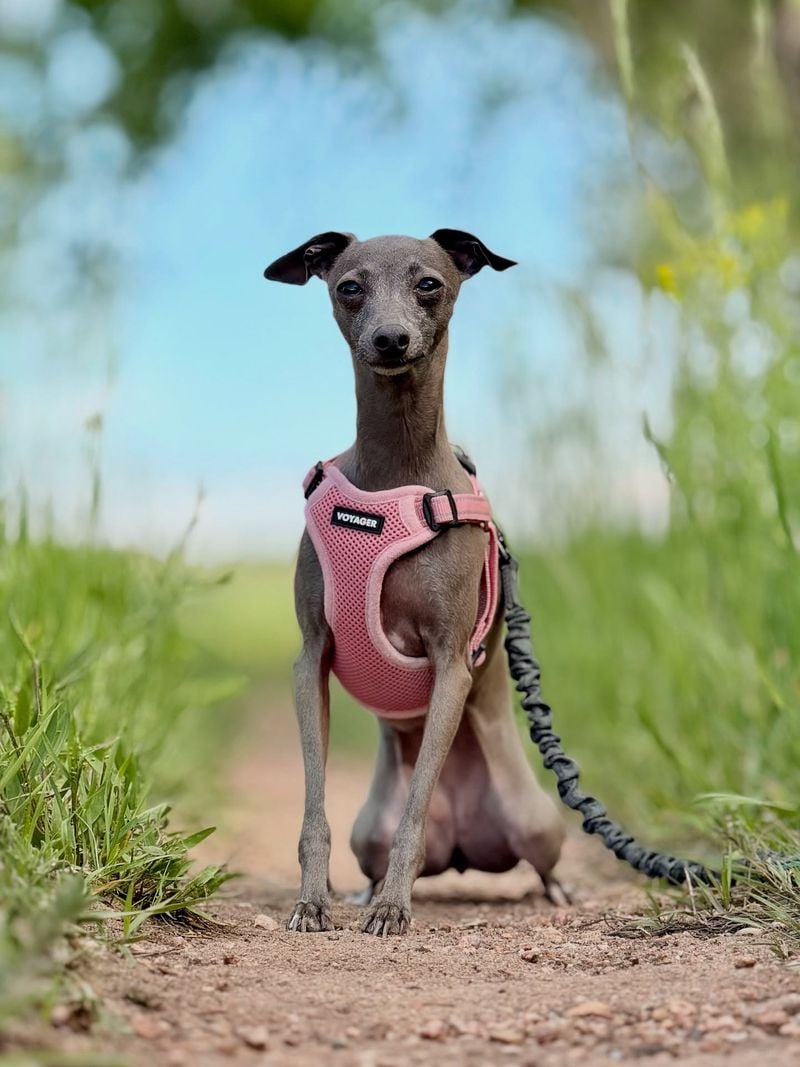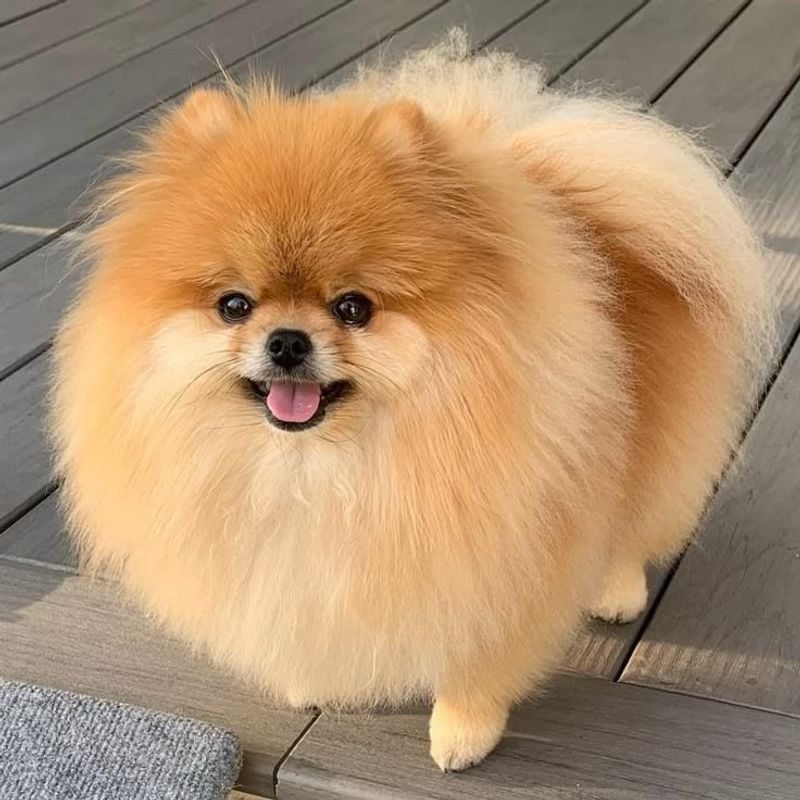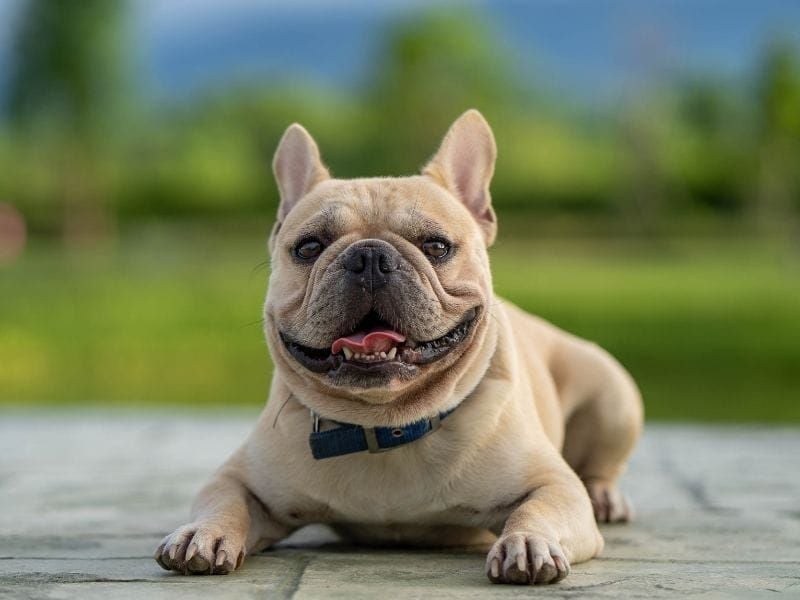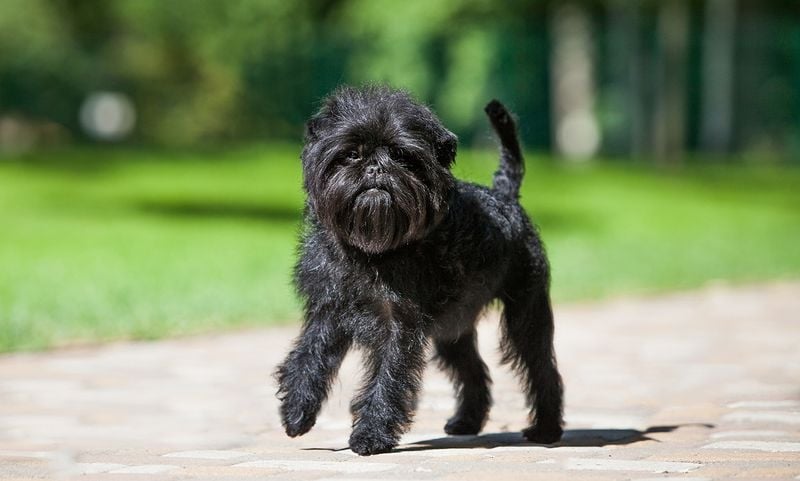19 Small Dog Breeds That Don’t Get Along With Other Dogs
Some dogs are social butterflies — wagging, wiggling, and woofing with every pup they meet. But others? Let’s just say they prefer to be the star of the show… solo.
If you’ve ever owned a small dog who growls at playdates or throws shade at the dog park, you’re not alone.
While we love their pint-sized charm, many small breeds come with big personalities — and not all of them are easygoing when it comes to other dogs.
In fact, some of the tiniest tail-waggers are known for their territorial streaks, jealous tendencies, or simply not vibing with canine company. This doesn’t mean they’re bad dogs — far from it. It just means they’re selective.
Some were bred to guard, hunt, or work solo, and those instincts haven’t exactly disappeared with time. Others are just a little… extra — demanding attention, space, or the last bite of your sandwich, thank you very much.
If you’ve ever found yourself apologizing at the park or scheduling solo walks to avoid drama, this list is for you.
We’re diving into 19 small dog breeds that don’t always get along with other pups. Whether it’s sass, spunk, or full-on “my way or the highway” energy, these little dogs are packed with personality.
That’s not to say they can’t learn to be more social — training, early socialization, and the right environment can work wonders.
But it’s important to know what you’re working with before bringing one of these feisty furballs home. After all, forewarned is forearmed (and less likely to be dragged into a bark-off at the dog run).
1. Chihuahua
Chihuahuas are known for their big personalities in tiny frames. Despite their small size, they often see themselves as the ruler of the roost.
This self-assuredness can lead to confrontations with other dogs, especially larger ones who might not take kindly to the Chihuahua’s feisty demeanor.
Their loyalty to their human companions is unwavering, making them protective and sometimes overzealous in guarding their territory. This can translate into barking fits or nipping when they feel intruded upon.
While they can be affectionate with people, their interactions with other pets require careful supervision. Socialization from a young age can help, but it’s not a guarantee for harmony.
2. Dachshund
With a long body and short legs, Dachshunds are charming but can be quite headstrong. Originally bred for hunting, they retain a strong prey drive that doesn’t always mesh well with other pets.
Their independent nature means they often make decisions based on their instincts rather than social cues, leading to misunderstandings with other dogs. They might see fellow canines as either competition or prey.
Despite their stubborn streak, Dachshunds can be loving and loyal to their family. However, their interactions with other dogs may require patience and early training to curb any aggressive tendencies.
3. Jack Russell Terrier
Jack Russell Terriers are bundles of energy and enthusiasm. Their fearless nature and intelligence make them both entertaining and challenging companions.
They have a strong desire to chase, hunt, and explore, which can sometimes result in aggressive encounters with other dogs. This breed is known for its determination and tenacity, often wanting to be the center of attention.
While they can be affectionate with their humans, their high energy levels and need for mental stimulation can make them difficult to manage around other pets. Early socialization and training are crucial for peace.
4. Pekingese
Regal and self-assured, Pekingese often carry themselves with an air of royalty. Their independent streak means they can be less interested in making friends with other dogs.
They are highly devoted to their human companions, which can sometimes lead to possessive behavior. This loyalty, combined with their stubbornness, means they often prefer their own space over playdates with fellow canines.
While they can be loving and affectionate, their interactions with other dogs should be monitored, as their royal demeanor doesn’t take kindly to challenges or disruptions.
5. Miniature Pinscher
Miniature Pinschers, often referred to as “Min Pins,” pack a big-dog attitude into their small frames. Known for their confidence and intelligence, they often take on the role of protector, even if it means challenging larger dogs.
Their spirited nature can sometimes be mistaken for aggression, particularly around unfamiliar dogs. They tend to be very alert and can become territorial if they feel threatened.
With proper guidance and training, they can learn to coexist with other dogs, but their natural inclination is to assert dominance, making early socialization essential.
6. Lhasa Apso
Lhasa Apsos were originally bred as watchdogs in Tibetan monasteries, lending them an air of aloofness and independence. They often exhibit a strong sense of self, preferring to assess situations before engaging.
Their protective instincts can make them wary of other dogs, especially if they perceive any threat to their territory or family. This wariness can sometimes result in snappy behavior.
While they can be affectionate with their family, they require patience and consistent training to ensure they don’t become overly possessive or aggressive towards other pets.
7. Shih Tzu
Shih Tzus might appear dainty, but they possess a surprisingly feisty spirit. Their strong bond with their human companions often makes them protective and sometimes possessive.
This loyalty can translate into jealousy, particularly when another dog enters the picture. They don’t always take kindly to sharing their loved ones or their space.
Although they are generally friendly, their interactions with other dogs can be unpredictable, requiring early socialization and careful supervision to maintain harmony in multi-pet households.
8. Toy Poodle
Toy Poodles are known for their intelligence and agility. While they are often praised for their trainability, they can also be quite possessive of their owners and surroundings.
Their observant nature means they are quick to notice changes in their environment. This can lead to suspicion of other dogs, whom they may perceive as intruders.
Despite their small size, they have a strong presence and are not easily intimidated. Ensuring they are well-socialized from an early age can help mitigate any possessive or suspicious tendencies.
9. Yorkshire Terrier
Small but mighty, Yorkshire Terriers are famous for their vibrant and confident demeanor. They rarely shy away from asserting themselves, regardless of the size of their opponent.
Their strong will and territorial nature can sometimes lead to conflicts with other dogs, as they are not afraid to let them know who’s in charge. They are fiercely loyal to their humans and can become possessive.
Proper training and socialization are key to ensuring that their interactions with other dogs remain peaceful and enjoyable for everyone involved.
10. Brussels Griffon
Brussels Griffons are known for their sensitive and quirky nature. They form deep bonds with their human companions, often leading to possessive behavior around other dogs.
Their unique personality can make them react unpredictably in social situations, particularly with hyper or dominant dogs. They prefer calm and controlled environments.
While they can be affectionate, their interactions with other pets require careful management. Socialization and exposure to various environments from a young age can help them cope better with new encounters.
11. Italian Greyhound
Elegant and gentle, Italian Greyhounds are known for their affectionate nature toward humans. However, their interactions with other dogs can be more complex.
They tend to be shy or even snippy around unfamiliar pups, preferring the company of their human companions. Their sensitive nature means they can be easily overwhelmed in chaotic environments.
While they are loving and devoted pets, their social interactions need careful management, ensuring they are not placed in stressful situations with aggressive or overly dominant dogs.
12. Papillon
With their distinctive butterfly-like ears, Papillons are alert and full of energy. Their territorial instincts can sometimes make them guarded around other dogs.
These small but spirited dogs often take their role as protectors very seriously, sometimes leading to challenges with dogs that invade their space.
While they are generally friendly, their interactions with other pets require early socialization and a watchful eye to prevent any territorial disputes.
13. Scottish Terrier
Scottish Terriers, often referred to as “Scotties,” are known for their independent and dignified nature. Bred to hunt solo, they carry a strong sense of autonomy.
Their instinct to work independently can sometimes translate into aloofness towards other dogs. They prefer their own company and may not be interested in socializing with unfamiliar canines.
While they are loyal and loving to their family, their interactions with other pets require patience and understanding, particularly if they are expected to share their space.
14. Cairn Terrier
Cairn Terriers are spirited and adventurous, with a natural bossiness that comes from their history as independent hunters. They are known for their scrappy nature.
Their desire to be the leader of the pack can sometimes lead to conflicts with other dogs, especially if they sense competition. They are not shy about asserting their dominance.
With proper training and early socialization, they can learn to get along with other pets, but their natural inclination is to lead, not follow.
15. Chinese Crested
Chinese Cresteds are known for their unique appearance and deep bonds with their human companions. Their loyalty to their family is unwavering.
However, this devotion doesn’t always extend to other dogs. They can be wary and sometimes aloof, preferring the company of humans over canine playmates.
Socialization from a young age can help them become more comfortable in multi-dog environments, but their natural preference is often solitude with their favorite people.
16. Pomeranian
Pomeranians are known for their fiery personalities and self-importance. Their fluffy coats and expressive faces make them irresistibly charming.
Their desire to be the center of attention can sometimes lead to conflicts with other dogs, whom they may see as a threat to their spotlight. They are confident and often fearless.
While they are loving companions, their interactions with other pets need careful handling and early socialization to prevent possessive or aggressive behavior.
17. French Bulldog
French Bulldogs are lovable and charming, but they can also be quite dominant. Their affectionate nature and love for their human companions are unparalleled.
In multi-dog homes, they can sometimes become overly dominant, leading to tensions with other pets. Their strong-willed nature means they need clear boundaries.
With proper training and socialization, they can be wonderful companions to both humans and other dogs, but their interactions require supervision to ensure harmony.
18. Basenji
Basenjis are known for their independence and aloof demeanor. Although not toy-sized, their strong will and solitary nature make doggy friendships challenging.
They are often likened to cats for their cleanliness and self-reliance. These traits contribute to their tendency to avoid socializing with other dogs.
While they can be affectionate with their human families, their interactions with other pets should be carefully managed to prevent misunderstandings or conflicts.
19. Affenpinscher
Affenpinschers are small dogs with big attitudes. Known for their monkey-like faces and playful nature, they exude confidence and charm.
Their territorial instincts can sometimes result in confrontations with other dogs. They are not ones to back down easily and will defend their space fiercely.
While they can be loving companions, their interactions with other pets require careful management and early socialization to ensure they don’t become overly possessive or aggressive.




